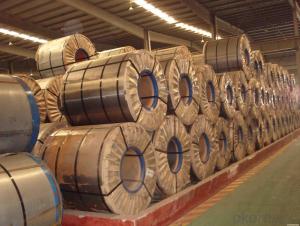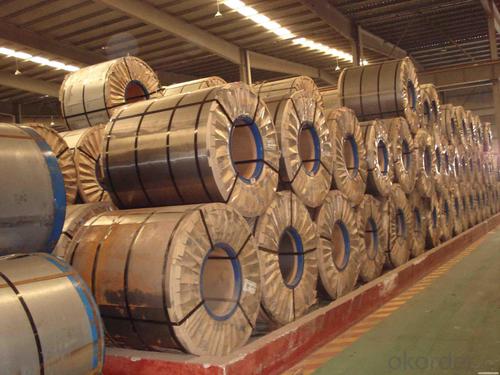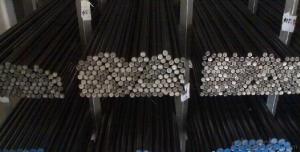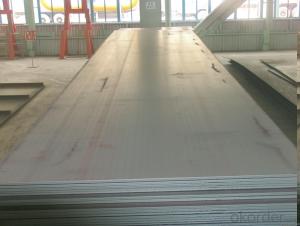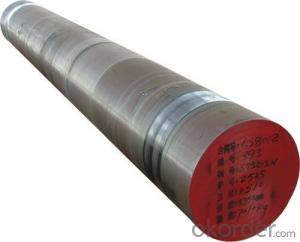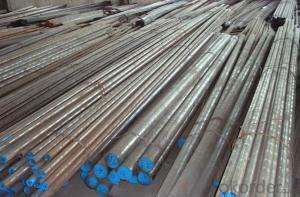Special Steel 65Mn Hot Rolled Spring Steel
- Loading Port:
- China main port
- Payment Terms:
- TT OR LC
- Min Order Qty:
- 30 m.t.
- Supply Capability:
- 10000 m.t./month
OKorder Service Pledge
OKorder Financial Service
You Might Also Like
Specification
Product information:
Description of goods: | |
Standard | JIS/DIN/ASTM/SUS/AISI/EN/GB...... |
Material | 201/202/216/304/316/309S/310/410/430...... |
Width | 600-3300mm |
Thickness | 2-120mm |
Length | 1000-6000mm, or as the clients' requests |
Technology | Hot rolled |
Tolerance | Control with in the standard |
Advantages | 1.Short delivery time |
2.Quality assurance | |
3.Competitive price | |
4.Superior Service | |
Packing: | |
1. Export sea worthy package + water proof paper + wooden pallet 2. Max Loading 26.5mt for each 20Gp container 3. Safe loading and fixing Professional Teams 4. Professional shipping line | |
Product Show:
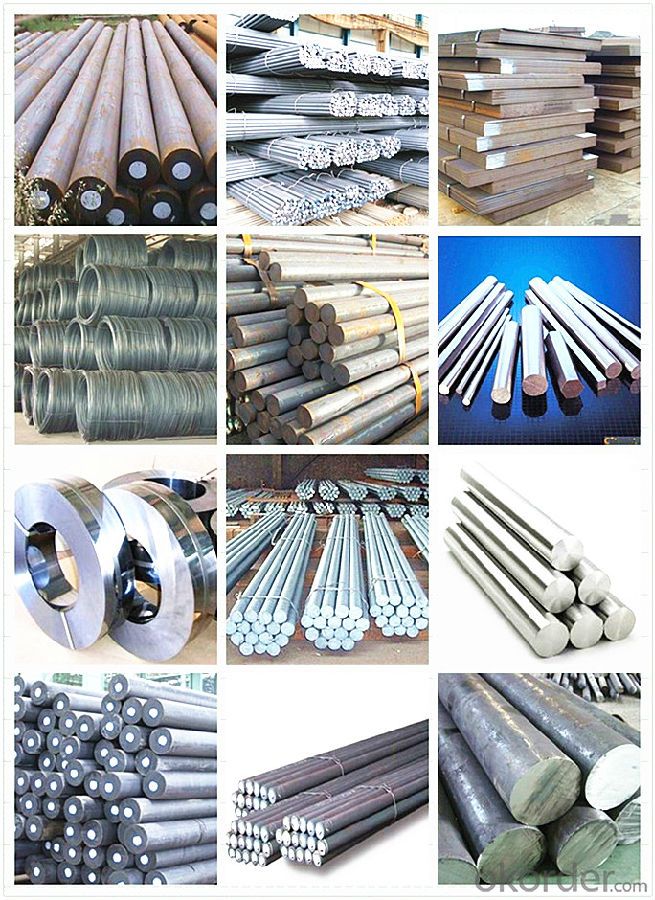
Workshop Show:
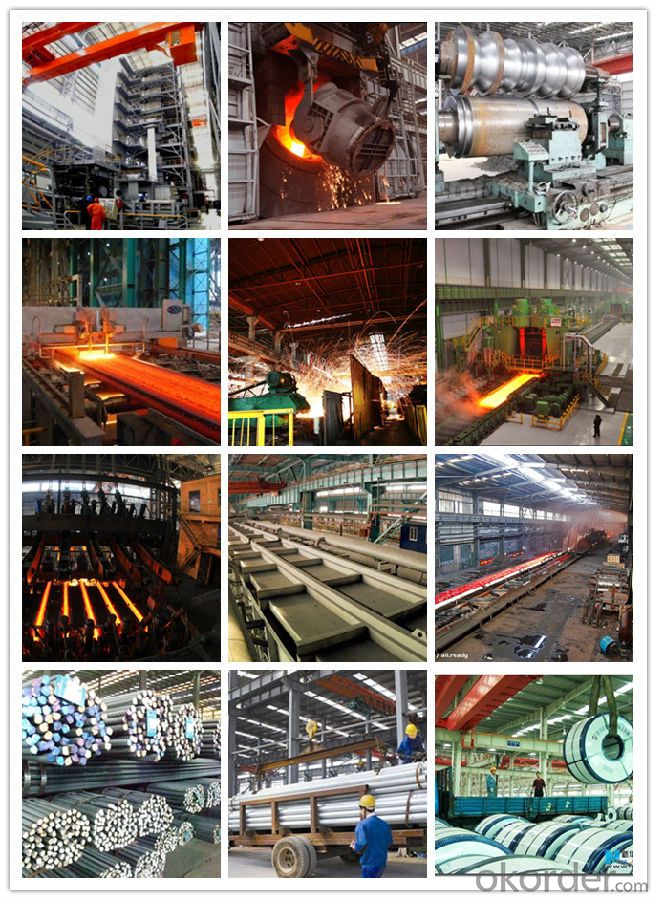
Shipping
1. FedEx/DHL/UPS/TNT for samples, Door-to-Door;
2. By Air or by Sea for batch goods, for FCL; Airport/ Port receiving;
3. Customers specifying freight forwarders or negotiable shipping methods!
Delivery Time: 3-7 days for samples; 5-25 days for batch goods.
Payment Terms
1.Payment: T/T, L/C, Western Union, MoneyGram,PayPal; 30% deposits; 70% balance before delivery.
2.MOQ: 1pcs
3.Warranty : 3 years
4.Package Informations: 1) EXPORT, In 20 feet (GW 25 ton) or 40 feet Container (GW 25 ton)
2)as customer's requirement
Why choose us?
(1) The leading exporter in China special steel industry.
(2) Large stocks for various sizes, fast delivery date.
(3) Good business relationship with China famous factories.
(4) More than 7 years steel exporting experience.
(5) Good after-sales service guarantee.
- Q: How does special steel contribute to the manufacturing of oil and gas equipment?
- Special steel plays a crucial role in the manufacturing of oil and gas equipment due to its unique properties and characteristics that make it suitable for the demanding conditions of the industry. Firstly, special steel is known for its high strength and durability, which is essential in the production of oil and gas equipment. Equipment such as drilling rigs, pipelines, and storage tanks are subjected to extreme pressures, corrosive environments, and harsh weather conditions. Special steel, with its superior mechanical properties, can withstand these conditions and ensure the reliable and long-lasting performance of the equipment. Additionally, special steel offers excellent resistance to corrosion and oxidation, which are prevalent in the oil and gas industry. The presence of corrosive substances and the exposure to high temperatures can cause regular steel to deteriorate quickly. However, special steel is specifically designed to resist corrosion, ensuring that the equipment remains functional and safe for use over its lifetime. Furthermore, special steel can withstand high temperatures and pressure differentials, making it suitable for applications such as heat exchangers and pressure vessels. These components are vital in various oil and gas processes, including refining and transportation. The ability of special steel to handle extreme temperatures and pressures ensures the efficiency and safety of these operations. Special steel also contributes to the manufacturing of oil and gas equipment by providing excellent weldability and machinability. This allows for ease of fabrication and assembly, reducing production time and costs. The versatility of special steel enables manufacturers to design and create complex equipment that meets the specific requirements of the oil and gas industry. In conclusion, special steel plays a crucial role in the manufacturing of oil and gas equipment by providing high strength, durability, corrosion resistance, and the ability to withstand extreme temperatures and pressures. Its unique properties ensure the reliability, safety, and longevity of the equipment, making it an indispensable material in the oil and gas industry.
- Q: How does special steel contribute to the marine machinery industry?
- The marine machinery industry greatly relies on special steel, which offers numerous advantages and contributes significantly to the efficiency and reliability of marine machinery. Above all else, special steel is renowned for its exceptional strength and durability. In the harsh marine environment, where machinery is constantly exposed to extreme weather conditions and high levels of corrosion, special steel ensures that marine machinery can withstand these challenges and maintain its integrity over a prolonged period. This enhanced durability not only extends the lifespan of marine machinery but also reduces the frequency of repairs and replacements, thereby resulting in cost savings for shipbuilders and operators. Furthermore, special steel possesses excellent welding and fabrication properties, making it easier to construct complex components of marine machinery. The ability to weld and fabricate special steel allows for the production of intricate and customized parts, which can be tailored to meet the specific requirements of different marine vessels. This design flexibility ensures that marine machinery is optimized for performance, efficiency, and safety. Moreover, special steel exhibits outstanding resistance to corrosion and erosion, which are common problems in marine environments due to saltwater and other corrosive agents. By utilizing special steel, marine machinery can effectively resist corrosion, preventing premature failure and reducing the need for maintenance. This corrosion resistance also enhances the overall safety of marine operations by significantly reducing the risk of machinery malfunction due to corrosion-related issues. In terms of efficiency, special steel contributes to the marine machinery industry by offering superior heat resistance and thermal conductivity. This enables marine machinery to operate at high temperatures without compromising performance, ensuring efficient energy conversion and optimal functioning of critical systems. The improved thermal properties of special steel also contribute to the overall fuel efficiency of marine vessels, resulting in reduced operational costs and environmental impact. In conclusion, special steel plays a vital role in the marine machinery industry by providing the necessary strength, durability, corrosion resistance, and thermal properties for the efficient and reliable operation of marine machinery. By harnessing the benefits of special steel, shipbuilders and operators can enhance the longevity, safety, and performance of marine vessels, ultimately contributing to the growth and sustainability of the marine industry.
- Q: What are the challenges in machining special steel with complex geometries?
- Some of the challenges in machining special steel with complex geometries include the difficulty in maintaining dimensional accuracy due to the intricate shapes, the potential for tool wear and breakage due to the high hardness and toughness of the steel, and the need for specialized cutting tools and techniques to effectively shape the intricate geometries. Additionally, the heat generated during machining can affect the material properties of the steel, leading to potential distortions or residual stresses in the final product.
- Q: What are the different types of nitriding steel?
- There are mainly two types of nitriding steel: gas nitriding steel and plasma nitriding steel.
- Q: What are the applications of special steel in the power generation manufacturing process?
- Special steel is widely used in the power generation manufacturing process due to its exceptional properties. It is utilized in various applications such as turbine blades, boiler tubes, and heat exchangers. The high strength and temperature resistance of special steel enable it to withstand the harsh conditions in power plants, ensuring reliable operation and increased efficiency. Additionally, its corrosion resistance properties help maintain the integrity of components, extending their lifespan and reducing maintenance costs. Overall, the applications of special steel in power generation manufacturing play a crucial role in enhancing the performance and durability of power plant equipment.
- Q: What are the different methods of surface pickling for special steel?
- There are several methods of surface pickling for special steel, including acid pickling, electrolytic pickling, and mechanical pickling. Acid pickling involves immersing the steel in an acid solution to remove impurities and oxides from the surface. Electrolytic pickling uses an electric current to remove contaminants from the surface of the steel. Mechanical pickling involves using abrasive materials or mechanical force to physically remove impurities and oxides from the surface. Each method has its advantages and may be chosen based on the specific requirements of the steel and the desired outcome.
- Q: Can special steel be used in the production of surgical implants?
- Yes, special steel can be used in the production of surgical implants. Special steel, such as stainless steel, is often preferred for surgical implants due to its high strength, corrosion resistance, and biocompatibility. It is commonly used for various types of implants, including orthopedic, dental, and cardiovascular implants.
- Q: What are the different defense grades of special steel?
- Special steel is a category of steel that is specifically designed to possess enhanced properties, such as increased strength, durability, and resistance to various environmental factors. When it comes to defense applications, special steel is often utilized to manufacture armor and protective components for military vehicles, aircraft, and naval vessels. These defense grades of special steel are classified based on their specific characteristics and performance levels. One of the most common defense grades of special steel is known as ballistic steel. Ballistic steel is engineered to provide exceptional resistance against ballistic threats, including bullets and shrapnel. It possesses high tensile strength and hardness, which allows it to withstand the impact and penetration of projectiles. Ballistic steel is categorized into several grades, such as MIL-A-46100, MIL-A-12560, and AR500, each offering different levels of protection against various types of ammunition. Another defense grade of special steel is known as blast-resistant steel. This type of steel is designed to withstand explosions and minimize the damage caused by shockwaves, fragmentation, and heat. It is commonly used in the construction of blast-resistant walls, doors, and windows for military bases, embassies, and critical infrastructure facilities. Blast-resistant steel grades are classified based on their ability to withstand different levels of explosive forces, with higher grades providing greater protection. Additionally, there are specialized grades of special steel used for anti-vehicle applications. These grades, such as Armox and Ramor, are engineered to resist the impact of heavy-caliber projectiles and explosive devices, making them suitable for manufacturing armored vehicles and personnel carriers. They provide a combination of high hardness, toughness, and energy absorption properties, ensuring the safety of military personnel on the battlefield. Overall, the defense grades of special steel are diverse and tailored to meet the specific requirements of different defense applications. They provide essential protection and ensure the safety of military personnel and equipment in challenging and hostile environments. The choice of the appropriate grade depends on the nature of the threat, the level of protection needed, and the specific design and performance criteria of the defense application.
- Q: What are the properties of stainless tool steel?
- Stainless tool steel possesses several important properties. Firstly, it exhibits high corrosion resistance, making it suitable for applications in moist or corrosive environments. Secondly, it demonstrates excellent hardness, allowing it to withstand heavy wear and maintain sharp cutting edges. Additionally, stainless tool steel has good toughness, enabling it to withstand impacts without breaking or chipping. Finally, it offers good dimensional stability, ensuring minimal distortion or warping during heat treatment or use. Overall, these properties make stainless tool steel an ideal material for various tooling applications.
- Q: How is special steel used in the manufacturing of tools and dies?
- Special steel is used in the manufacturing of tools and dies due to its exceptional properties, such as high strength, hardness, and wear resistance. These steels can withstand extreme temperatures and pressures during the forming, cutting, and shaping processes. They also have excellent dimensional stability, ensuring precise and accurate tooling. Special steel's unique composition and heat treatment capabilities allow for the production of durable and long-lasting tools and dies, which are essential for various industries like automotive, aerospace, and manufacturing.
Send your message to us
Special Steel 65Mn Hot Rolled Spring Steel
- Loading Port:
- China main port
- Payment Terms:
- TT OR LC
- Min Order Qty:
- 30 m.t.
- Supply Capability:
- 10000 m.t./month
OKorder Service Pledge
OKorder Financial Service
Similar products
Hot products
Hot Searches
Related keywords
